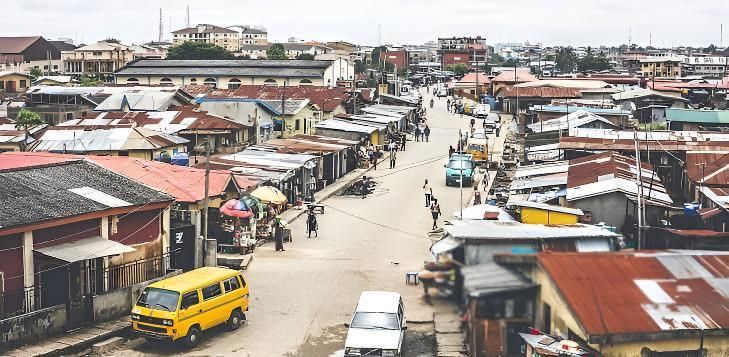Nigeria, a country bursting with life and energy, faces a silent but pressing challenge—an enormous housing deficit that has reached 21 million units.
This alarming figure underscores the growing struggle of a nation where the population has surged to 220 million, with an annual growth rate of 2.5%. As urbanization accelerates, the United Nations has sounded the alarm: by 2030, 60% of Nigerians could find themselves crammed into cities, adding immense strain to an already burdened housing sector.
Across the country, vast estates stand eerily empty, their high prices making them inaccessible to the average citizen. Meanwhile, abandoned housing projects dot the landscape, grim reminders of promises unfulfilled by both the government and private developers. Real estate experts estimate that bridging this housing gap will require nothing short of a miracle—N5 trillion annually to build 2.7 million homes every year for the next decade.
At the recent Africa International Housing Show in Abuja, stakeholders painted a sobering picture. They revealed that the housing shortfall, which requires at least 550,000 new units annually, could grow even more dire without urgent intervention. For investors, this challenge also presents a golden opportunity—a N5.5 trillion market waiting to be tapped. But the stakes are high, and the clock is ticking.

Nuel Osilama, Vice President of the Real Estate Developers Association of Nigeria (REDAN) for North Central, provided a stark assessment. He argued that if the country is to bridge this gap within a decade, each state must commit to producing a minimum of 56,000 housing units annually. While this vision seems ambitious, Osilama insists it’s achievable if state governments create the right environment and embrace forward-thinking strategies.
Yet, the realities on the ground tell a different story. The value of the Naira has plummeted, driving up the cost of construction materials, most of which are imported. Projects that were initially budgeted at N1 billion now require more than double that amount to complete. This economic volatility has left countless housing projects abandoned. Osilama advocates for government intervention, urging support for local manufacturing of building materials and innovations from bodies like the Nigerian Building and Road Research Institute (NIBRI). Without such support, he warns, Nigeria’s housing sector may remain trapped in a cycle of stagnation.
Adding to the complexity is the paradox of empty luxury homes amid a sea of homelessness. These high-end properties, often built as investments or status symbols, are far beyond the reach of ordinary Nigerians. Festus Adebayo, an advocate for affordable housing, laments that developers are building for those who already own multiple homes, leaving the real needs of the population unmet. He highlights the high vacancy rates in cities like Lagos, Abuja, and Port Harcourt, where abandoned estates have become a common sight.
Government efforts to address the crisis, though commendable, fall woefully short. The Minister of Housing and Urban Development, Arc. Ahmed Dangiwa, announced plans to deliver 50,000 housing units, but this barely scratches the surface compared to the 550,000 units needed annually. While initiatives like the Online Housing Portal and the proposed National Social Housing Fund offer hope, their impact remains to be seen.
Pastor Matthew Ashimolowo, speaking at the same housing show, emphasized the need for innovative financing solutions. Citing the World Bank’s recommendation for Nigeria to build 700,000 units annually over 20 years, he pointed out that achieving this goal would require a staggering N59 trillion investment. Ashimolowo, a seasoned real estate investor, stressed that housing is a “financing game,” with developers needing capital to build and buyers requiring affordable mortgage options.

Insecurity further compounds the problem, particularly in states like Imo, where kidnappings and violence deter investors and developers. Estates that once promised modern living now lie abandoned, overtaken by weeds and serving as hideouts for criminals. Developers plead for improved security and better infrastructure to encourage investment in rural areas, which could help ease the pressure on urban centers.
The story of Nigeria’s housing crisis is not new, but its urgency has never been greater. From abandoned estates in Imo to the dilapidated Shagari Housing Estate in Ondo, the evidence is clear: the nation must act swiftly and decisively. Whether through public-private partnerships, innovative financing, or policy reforms, the time for bold action is now. For millions of Nigerians, a safe and affordable home remains not just a dream but a fundamental human right—one that the country cannot afford to ignore any longer.



